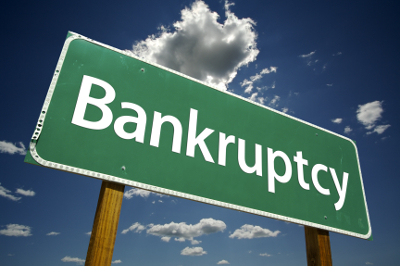A potential legal claim against somebody can carry value. Depending on your situation, you could have claims for anything ranging from personal injury or discrimination to security deposits owed to you by a landlord. When you submit a bankruptcy petition you must list all non-exempt assets.
Do I have to list a potential legal claim in my bankruptcy?
Typically yes. You will need to list all property and assets as well as their estimated values in your bankruptcy schedule.1 Specifically, Schedule B of your bankruptcy papers requires all potential claims, even if they are contingent or unliquidated.2 This means that your lawsuit must have some kind of value that you have to assess to list on such a schedule. This is not always an easy process. For example, a contract claim can be valued more readily than a personal injury case.3 Personal injury involves calculations such as your pain and suffering, whereas contract cases may have a dollar value already assigned to them (e.g. someone breached a $3,000 contract).
Standing is also an issue when it comes to deciding whether your lawsuit is an asset or not. Standing is the judicial concept that requires you to have a personal stake in the outcome of a legal controversy so there is an actual harm that the court can redress.4 This means that if your case is moot or if you are not the one who should be suing, among other reasons, your case could be dismissed for a lack of standing. Thus, your case would not have any value to report.
Federal bankruptcy exemptions allow you to keep certain personal injury lawsuit monetary payments as long as you do not exempt money reimbursed for pain and suffering or other pecuniary losses.5 You may also be able to keep money you received in a wrongful death action.6
If you have a potential lawsuit or a current lawsuit and you need to value it or determine what to do during your bankruptcy, it is best to contact an experienced bankruptcy attorney.
What about settlements?
Settlements to lawsuits can be given in the form of money or property. Whether or not you can keep your settlement in bankruptcy depends on the type of bankruptcy you file, the type of settlement you received, and when your cause of action arose (i.e. before or after the bankruptcy). Your attorney will help you determine or not your specific lawsuit or settlement amount needs to be included in your bankruptcy and whether or not you can keep the amount.
Chapter 7
The Chapter 7 or liquidation bankruptcy will allow you to discharge most of your debt once you file your bankruptcy petition. You are required to list all non-exempt assets in a bankruptcy schedule. These assets then become part of the bankruptcy estate which the bankruptcy trustee will use to pay off your creditors. Since you need to list all current legal claims or causes of action in your bankruptcy petition, you will have to list settlement property in your bankruptcy schedule too (depending on the date of your injury or when the claim arose).7 If you receive an inheritance, property settlement, or life insurance benefits within 180 days after your bankruptcy it will become part of the bankruptcy estate and it will be paid to your creditors.8
Chapter 13
In a Chapter 13 bankruptcy you create a court-approved three to five year repayment plan to pay back your creditors. The bankruptcy trustee here does not take your assets to pay your creditors; instead, you pay your creditors a modified amount based on your repayment plan.9 You will most likely have to include settlement or property you acquired during your three to five year case. You should include a lawsuit if it happened before you filed for bankruptcy under Chapter 13.10 If you find out you may have a valuable legal claim in the middle of your bankruptcy, you should then report it as well.11A� Whether or not you can keep a settlement in your Chapter 13 bankruptcy depends on whether or not the lawsuit award is exempt property or not.
[1] Jason Weaver, Should I List Possible Legal Claims in My Bankruptcy?, bankruptcysite.org, http://www.thebankruptcysite.org/resources/should-i-list-possible-legal-claims-my-bankruptcy.htm (last visited Nov. 24, 2014).
2 Baran Bulkat, Do I Have To List Possible Legal Claims In My Bankruptcy?, nolo.com, http://www.nolo.com/legal-encyclopedia/do-i-have-list-possible-legal-claims-my-bankruptcy.html (last visited Nov. 24, 2014).
3 Jason Weaver, supra note 1.
4 Michael Strong, stronglawfirm.com, http://www.stronglawfirm.com/library/failing-to-list-a-lawsuit-in-your-bankruptcy-case.cfm (last visited Nov. 24, 2014).
5 Cara O’Neill, Can I Keep A Lawsuit Or Settlement If I File For Chapter 7 Bankruptcy?, nolo.com, http://www.nolo.com/legal-encyclopedia/can-i-keep-lawsuit-award-settlement-if-i-file-chapter-7-bankruptcy.html (last visited Nov. 26, 2014).
6 Id.
7 What Happens To A Settlement I Receive After Bankruptcy?, alllaw.com, http://www.alllaw.com/articles/nolo/bankruptcy/receive-settlement-after-bankruptcy.html (last visited Nov. 24, 2014).
8 Bankruptcy – Arizona Frequently Asked Questions, arizonabankruptcylaw.com, http://www.arizonabankruptcylaw.com/faq.html (last visited Nov. 24, 2014).
9 What Happens To A Settlement I Receive After Bankruptcy?, supra note 7.
10 Carron Armstrong, What Happens if I File a Lawsuit in the Middle of My Chapter 13 Case?, the bankruptcysite.org, http://www.thebankruptcysite.org/resources/what-happens-if-i-file-a-lawsuit-middle-my-chapter-13-cas (last visited Nov. 26, 2014).
11 Id.


